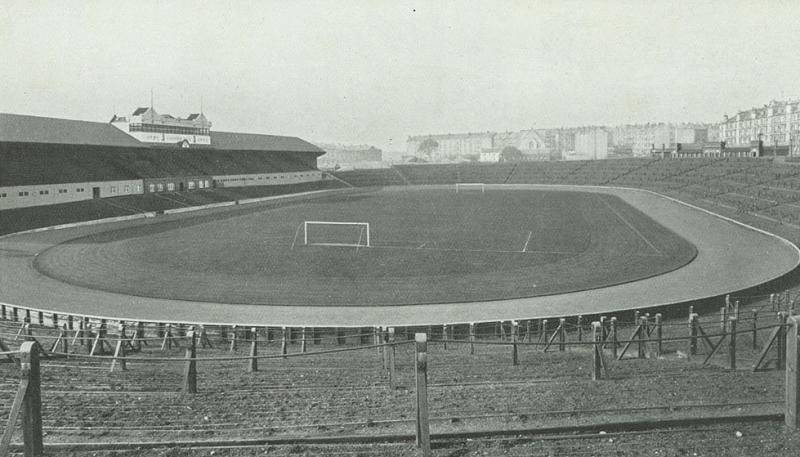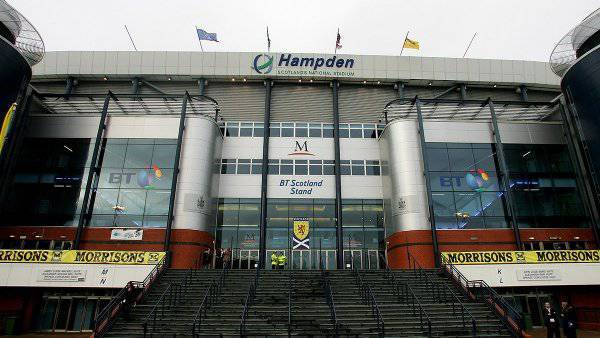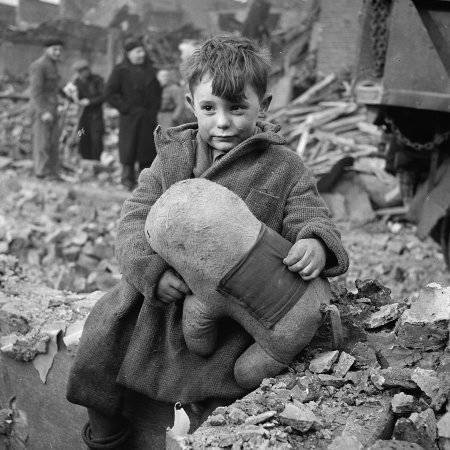Commentator

In the summer of 1940, the Nazi German government tried to make peace with Great Britain in order to secure the rear for the upcoming war against the USSR. But this operation did not achieve success. Then on July 16, 1940, Hitler issued directive No. 16 on the preparation of Operation Sea Lion, and on August 1, 1940, directive No. 17 on conducting a wide air war against England. The aim of the latter directive was the widespread use of three air fleets (3, 2, and 5) under the command of Colonel General Sperle, Colonel General Kesselring and Colonel General Stumpf for bombing England. The UK government has taken all possible measures to ensure the country's security. More than 100 radar stations were deployed on the coast, which could warn in advance of a German air attack aviation. However, the total number of combat aircraft and anti-aircraft guns did not allow Britain to ensure the complete security of the country. In April 1940, German troops landed in Norway and in a short time captured the country. Luftwaffe airfields were created on its territory, from which it was now possible to provide bombing of the northern regions of Great Britain.
The port city of Glasgow, located on the northwest coast of Great Britain, was the center of the shipbuilding and aviation industry. Over 20 shipyards built and repaired ships for the British Navy and ships to supply the country with ammunition and products. The city was famous for the fact that it was the football capital of Scotland. Back in 1887, in this city, the priest Brother Wolffried created the first football team. This team was named Celtic, and the football club to which it belonged was Brave Guys. The authority of the Celtic football team in Scotland was immense. For example, at the city stadium "Hempden Park" before the outbreak of hostilities with Germany in the game with the team "Aberdeen" was attended by more than 140 thousands of fans.

In the area of Glasgow, in addition to factories producing weapons, there were a lot of hospitals where wounded British soldiers were treated. German air raids after the losses it suffered in the fight against the fighters of the Royal Air Force and from air defense systems, demanded to change the tactics of bombing. Now the German non-111 bombers carried out attacks on military and civilian objects at night and in thick fog. The radionavigation systems created in Germany allowed these bombers to accurately reach the targets indicated in the flight task in the absence of visibility. In 1940, a case occurred during the raid of a large compound of Non-111 bombers on Glasgow, which deserves the attention of a wide circle of readers of the Military Review. This case once again confirms that "and there is a warrior in the field." An article about this event was published in a Scottish newspaper in the 1950s. The journalist who published the article had to seriously try to get the material in print (due to secrecy). But even with such nuances, the article aroused great interest in the UK and for a few days the people of the country discussed it for a long time. The article was titled "Notes by the radio operator of the N-sky battalion of the 22 Guards Regiment of Ernest Robert Hart." Below I will give the story of this radio operator.
“I am writing about events about which I cannot be silent, I understand that my end may be close. There are no reinforcements, but the Boshes continue to advance. My walkie-talkie has long been broken, so I have nothing else to do. So I decided, while I have free minutes, to write my own history about how I got to the front. If someone finds the material written by me, then let him draw the appropriate conclusion for himself and publish the article. I do not want anyone else to suffer for the same reason as me. Africa today is far from the best place for aristocratic travel — it is a place of fighting.
My name is Ernst Hart. I was born in London in 1908. After school, he graduated from the College of Radio Engineering and, by a happy coincidence, got on the BBC radio station. In the first years of work, I was an ordinary employee, and I was only trusted to work with electronics. After a while the management paid attention to me. I got a promotion and became the editor of the sports department. In addition to practicing technology, I also enjoyed journalism. I especially liked to comment on football matches. Apparently, that's why I was entrusted with this section of work. After some time, the people of London began to recognize my voice in their receivers when I was broadcasting from football fields. I was especially proud that I had the honor of commenting on the UK Cup semifinal in 1935. Yes, yes, you heard my voice then! They began to consider me a valuable employee, and with the beginning of the war with Germany they gave out a reservation. When the bombing of London began, I was transferred to work in Glasgow. Upon arrival there, I had to radio comment on the Celtic-Glasgow Rangers match. For those who do not know, I inform you that it was a charity match, all the fees from which were to go to the Admiralty Fund. On the stadium on this day, representatives of the highest commanders of all the armed forces were expected, and according to the receiver, the Prime Minister himself should have listened to the report about the match. There were practically no empty seats at the stadium, among the spectators there were many wounded from the local ones. On this day, the strongest fog descended on Glasgow. He tightened the stadium bowl so that it was difficult to distinguish the players. This can be compared to the fact that in a bowl of mushroom soup with a large amount of cream no mushrooms can be seen. I wanted to cancel the broadcast in the air: nothing could be seen from the commentary booth on the football field. But the phone did not work, and that it was impossible to broadcast, I could not inform the management of "BBC". And then a terrible story began in my life. The officer entered the commentator’s booth, where I prepared for the broadcast. He asked to postpone the broadcast for some time and go down to the representative of the Headquarters of the Royal Air Force. I quickly went down to the lobby of the stadium, where an officer with the rank of captain was already waiting for me. He told me about what everyone in the stadium could not even imagine. According to him, a large group of non-111 bombers was approaching Glasgow from Norway. According to intelligence reports, their mission was the complete destruction of the city, to which they had to approach within half an hour. I felt bad because the bombings of London were fresh in my mind when our house was destroyed before my eyes.

Our fighters in the fog will not be able to intercept the German bombers, nor will the air defense anti-aircraft artillery be able to destroy them, due to the lack of visibility. I advised the captain to urgently evacuate even the fans from the stadium, to which the officer, grinning, replied: “This is impossible! A crush will begin, and people will not have time to get out. To cancel such an important match for the country means to cause great damage to our nation. We must play. The last words of the captain reminded me of the expression of the poet Newbott.
“Recently in Edinburgh,” continued the captain, “we destroyed a group of Nazi spies.” Therefore, the source of the fog over the city from the enemy can not be. Except, of course, non-encoded radio messages, that is, yours. ”
For some reason, the words of the captain did not flatter me. The captain further explained that there is a high probability of preventing the bombing if the commentator, that is, I manage to convince the residents of Great Britain, including German pilots, that the weather is fine over Glasgow, there is not a single cloud, and the sun is shining brightly. Indeed, in such an environment, our fighters and anti-aircraft guns will be able to destroy the German bombers. Therefore, I was advised to return to the cockpit, sit comfortably in the chair and start broadcasting the match, inventing various situations.
Returning to the cockpit, I with great difficulty squeezed the words on the air that the weather was beautiful over Glasgow. The judge announced the start of the match. Then I called the starting lineups, and then stopped for a while. It turned out pretty stupid, but I really did not know how and what to talk about further. Only a few seconds later I realized that the words I said depend on the lives of thousands of people not only in the stadium, but in the whole city. Involuntarily, before my eyes, I had a picture of a little Londoner who sat on the ruins of his house and clutched a teddy hippo to himself. Somehow I couldn’t argue about anything, I didn’t understand the Scottish league so far, but I only knew the state of the English League teams. The match continued, and the only thing that I could somehow navigate was the cries of the fans, but they could not help me at this moment. Nevertheless, collecting my thoughts, I began to report.
David Kinar grabbed the ball and quickly reached the Celtic goal on the left! Beautiful chamber! But the ball takes goalkeeper Willie Miller. The goalkeeper throws the ball in the center of the field picks it up ... I can hardly see from the speaker’s booth who. But it seems to be Jimmy Delaney. As we are glad to see, Delaney is on the field today, I continued to inform the fans. He passes the ball to Lynch, and Lynch gives the ball to the right. For Lynch, this is a farewell match today, because he, as well as ... uh ... Mouzson and Devers will be leaving for the army tomorrow. What a patriotic move by football players. We will all be waiting for their return from Africa and hope that everything will be fine with them. But George Paterson! Well ... what are you waiting for? What is there? Yellow card? It seems no!
So I reached the halftime break. I was shaking like a fever. Suddenly, the same captain who gave me instructions from 40 minutes ago rose to the commentary booth. He, smiling, informed me that, according to intelligence, the German planes turned back. The captain expressed his gratitude to me, and he, as he told me, urgently goes to headquarters. Then the officer shook my hand and promised to contact me later. I remember it well. But I did not receive any news from the captain either in the evening or the next day. The only thing that caught my eye was a note in the newspaper, where it was mentioned that the country's air defense ensured the protection of the city during a football match from German aviation. Among those awarded for this operation was the name of the captain, who was awarded a medal. And I was glad that I remained alive, but my feelings were mixed.
I commented on the match to the end and, of course, I composed everything to the fans of Great Britain who were listening to the report on the radio sets. After the match, I left Hampden Park Stadium neither alive nor dead, and spent a couple of hours at a local pub sipping a beer. In the morning I received news from the editorial office. They, it turns out, no one warned about anything, and they fired me for falsely reporting. I was booked.
At the front I was determined by my education as a radio operator. That, in principle, was not so bad. But who could know that our detachment will have to please in such a mess. The commander was killed, and I, saying goodbye to you, are writing these sheets, which I then put in the battery compartment of the walkie-talkie so that they do not spread over this damned desert. Read them.
Information